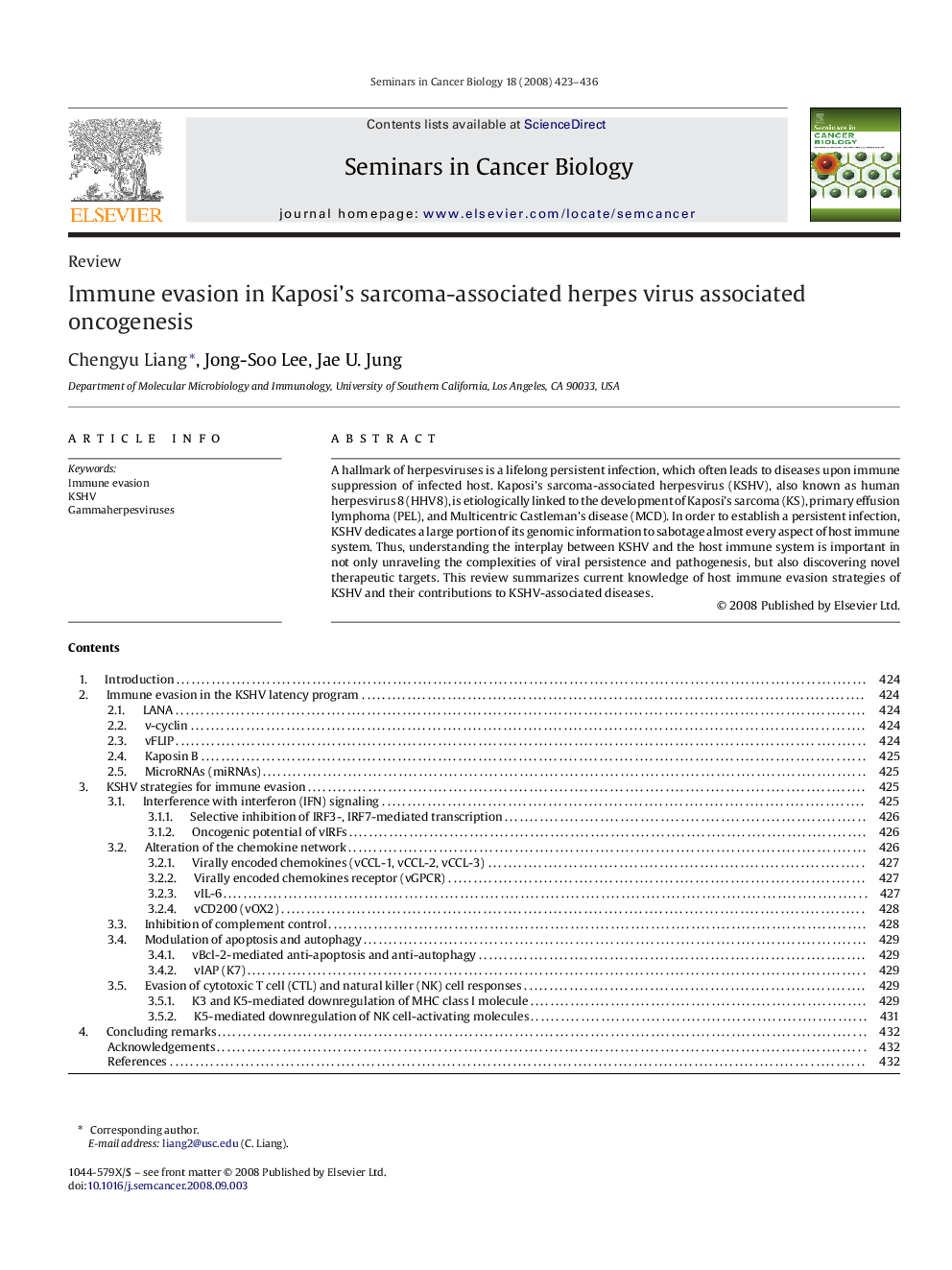| Article ID | Journal | Published Year | Pages | File Type |
|---|---|---|---|---|
| 2024043 | Seminars in Cancer Biology | 2008 | 14 Pages |
A hallmark of herpesviruses is a lifelong persistent infection, which often leads to diseases upon immune suppression of infected host. Kaposi’s sarcoma-associated herpesvirus (KSHV), also known as human herpesvirus 8 (HHV8), is etiologically linked to the development of Kaposi’s sarcoma (KS), primary effusion lymphoma (PEL), and Multicentric Castleman’s disease (MCD). In order to establish a persistent infection, KSHV dedicates a large portion of its genomic information to sabotage almost every aspect of host immune system. Thus, understanding the interplay between KSHV and the host immune system is important in not only unraveling the complexities of viral persistence and pathogenesis, but also discovering novel therapeutic targets. This review summarizes current knowledge of host immune evasion strategies of KSHV and their contributions to KSHV-associated diseases.
